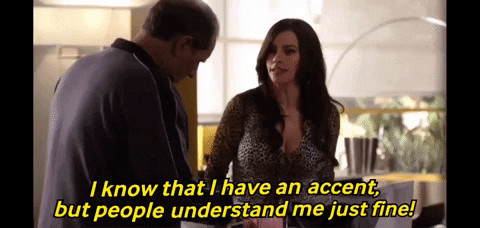The year 2020 marked the quiet end of an era in television comedy. As the world grappled with the onset of the Coronavirus pandemic, Modern Family (ABC, 2009-2020), a show that had become a beloved staple in homes across America for over a decade, aired its final episode. While the finale may have been overshadowed by global events, the legacy of Modern Family, and particularly the breakout role of Sofía Vergara, remains significant. For Vergara, a Colombian actress already known within Latin American and US Hispanic television circles, Modern Family catapulted her into mainstream US fame. Her portrayal of Gloria Delgado-Pritchett not only made her a household name but also solidified her position as the highest-paid actress in US television from 2013 to 2020.
The character of Gloria, and Vergara’s performance, have become subjects of considerable academic interest within Media Studies and related fields. Scholars have explored various facets of Gloria’s representation, sparking insightful discussions about Latina stereotypes, comedic portrayal, and cultural impact. This article delves into these scholarly perspectives to understand the complex phenomenon of Sofia Vergara Modern Family, examining how her role as Gloria Delgado-Pritchett has been both celebrated and scrutinized.
The Scholarly Debate: Accent, Stereotypes, and Representation
The academic world has taken note of Sofía Vergara and her embodiment of Gloria Delgado-Pritchett, recognizing the character as a significant point of discussion regarding Latina representation in US media. A central point of analysis revolves around Gloria’s distinctive Spanish accent. Héctor Fernández L’Hoeste (2017) posits that Vergara cleverly utilizes her accent, often perceived as a linguistic “deficit,” as a tool for social commentary. By intentionally misusing English idioms and phrases, Gloria, in Vergara’s hands, subtly critiques societal norms and expectations.
Expanding on this linguistic dimension, Dolores Inés Casillas, Juan Sebastián Ferrada, and Sara Veronica Hinojos (2018) delve into Vergara’s “vocal body.” They argue that Gloria’s Latina identity is fundamentally constructed through her accent. Both the auditory and visual cues associated with Gloria’s character, they contend, contribute to her racialization as Latina. The exaggerated accent and occasional grammatical errors become comedic devices, simultaneously reinforcing and playing with gender and racial hierarchies within the show’s narrative. Salvador Vidal-Ortiz (2016) further emphasizes the accent as a primary marker of Gloria’s racial and gender identity, questioning whether Vergara’s portrayal ultimately challenges or reinforces existing power structures in the US, beyond simply deviating from standard English.
 Sofia Vergara as Gloria Delgado-Pritchett
Sofia Vergara as Gloria Delgado-Pritchett
Beyond Accent: Sexuality and “Hipster Racism”
Beyond the focus on accent, scholars have also examined the portrayal of sexuality in Vergara’s Gloria. Isabel Cristina Porras Contreras highlights how, unlike some other Colombian female figures in international media, Vergara is celebrated as a global sex symbol, embodying a hypersexualized Latina persona. This contrasts sharply with the often disparaged and policed image of sex workers from her native region in the Colombian Caribbean, revealing a complex interplay of representation and social perception.
In a comprehensive analysis of Vergara’s role in Modern Family, Isabel Molina Guzmán (2018) situates Gloria Delgado-Pritchett within the context of a perceived “post-racial” United States and the phenomenon she terms “hipster racism.” Molina-Guzmán argues that contemporary television comedies, including Modern Family, serve as key sites for this “hipster racism.” This concept suggests a growing societal comfort, particularly among media producers and audiences, with humor and language that might be considered offensive. Instead of ignoring issues of race, ethnicity, and gender, shows like Modern Family incorporate sexism, racism, homophobia, and xenophobia alongside multicultural representations as core elements of their comedic formula. This raises questions about whether the humor derived from Gloria’s character ultimately reinforces or challenges stereotypical views of Latinas.
Gloria Delgado-Pritchett: More Than Just a Stereotype?
Despite the critiques, some perspectives suggest a more nuanced interpretation of Gloria Delgado-Pritchett. The question arises: is Gloria merely a collection of Latina stereotypes, or is there a more complex dynamic at play? The concept of “re-tropicalization,” as articulated by Frances Aparicio and Susana Chávez-Silverman (1997), offers a potential framework for understanding. This theory suggests that strategically embracing and exaggerating stereotypes can be a powerful tool to expose and subvert their inherent power.
The popular “Best of Gloria” compilations, often circulated online, exemplify this tension. These montages typically highlight Gloria’s accented English, her passionate outbursts, and her dramatic gestures. The humor derives, in part, from the exaggeration of perceived Latina traits. However, the effectiveness of this comedic approach hinges on whether viewers recognize the artifice. If the audience is “in on the joke,” understanding that the portrayal is a deliberate performance of stereotypes, then it can function as a form of social commentary. However, the risk remains that viewers may simply perceive Gloria as a reinforcement of existing stereotypes, missing any potential satirical intent. As one YouTube commenter aptly noted, Gloria’s appeal lies in being “funny… yet dangerous at the same time,” encapsulating the contradictory forces at play in Vergara’s performance.
 Gloria’s Talking Head in S3 Ep5 “Hit and Run”
Gloria’s Talking Head in S3 Ep5 “Hit and Run”
Personal Reflections and the Complexity of Vergara’s Performance
The portrayal of Gloria Delgado-Pritchett evokes complex and sometimes conflicting reactions, particularly for viewers from similar backgrounds. For US Colombian women, like the author of the original article, watching Sofía Vergara embody Gloria can be a particularly layered experience. Growing up with limited positive representation of Latinas in media, the desire to see Colombian women on screen is deeply felt. However, Gloria’s character doesn’t simply fulfill this desire in a straightforward way. Instead, her performance navigates a precarious balance between comedic entertainment and the perpetuation of long-standing stereotypes about Latinas and Colombian women.
The lines between Sofía Vergara, the actress, and Gloria Delgado-Pritchett, the character, become blurred. Vergara’s public persona, often emphasizing her Colombian heritage and accent, contributes to how audiences interpret Gloria. This interplay can lead to a sense of “vergüenza ajena,” or “shame-by-proxy,” a feeling of discomfort stemming from the perceived reinforcement of stereotypical portrayals. Yet, this discomfort is also intertwined with a sense of familiarity. Gloria’s communication style, mannerisms, and even her struggles with English, resonate with the lived experiences of many US Colombian women navigating cultural and linguistic landscapes in the United States. These are women who, despite varying levels of privilege, often encounter prejudice and navigate societal expectations rooted in stereotypical perceptions.
The character, therefore, becomes a complex mirror reflecting both the stereotypes and the lived realities of a specific cultural group. It highlights the pressure to conform to certain beauty standards and gender roles, both within Colombian culture and in the US context. It touches upon the intergenerational transmission of cultural norms and the sometimes fraught relationships that can arise when individuals challenge these norms. In this light, Gloria Delgado-Pritchett becomes more than just a comedic character; she becomes a cultural touchstone, prompting reflection on identity, representation, and the enduring power of stereotypes in media.
 Gloria’s Talking Head in S3 Ep5 “Hit and Run”
Gloria’s Talking Head in S3 Ep5 “Hit and Run”
In conclusion, Sofía Vergara’s portrayal of Gloria Delgado-Pritchett in Modern Family is a multifaceted phenomenon that warrants ongoing critical examination. It is not simply a generic Latina representation but a performance deeply rooted in diasporic, gendered, classed, raced, and regionalized contexts. To fully appreciate the complexities of Sofia Vergara Modern Family, it is crucial to consider her Colombian identity, her comedic approach, and the broader landscape of Latina representation in US media. While the character may elicit conflicted feelings and raise important questions about stereotypes, Gloria Delgado-Pritchett undeniably leaves a lasting impact on the landscape of television comedy and the ongoing dialogue about cultural representation.
References:
Aparicio, Frances R., and Susana Chávez-Silverman. 1997. Tropicalizations: Transcultural Representations of Latinidad. Hanover, NH: University Press of New England.
Casillas, Dolores Inés, Juan Sebastián Ferrada, and Sara Veronica Hinojos. 2018. “The Accent on Modern Family: Listening to Representations of the Latina Vocal Body.” Aztlán: A Journal of Chicano Studies 43(1): 61-87.
Fernández L’Hoeste, Héctor. 2017. What’s in an Accent: Gender and Cultural Stereotypes in the Work of Sofía Vergara. In The Routledge Companion to Latina/o Media, ed. María Elena Cepeda and Dolores Inés Casillas, 233-240. New York: Routledge.
Molina-Guzmán, Isabel. 2018. Latinas & Latinos on TV: Colorblind Comedy in the Post-Racial Network Era. Tucson: University of Arizona Press.
Porras-Contreras, Isabel Cristina. 2017. “Sofía Vergara Made Me Do It”: On Beauty, Costeñismo and Transnational Colombian Identity.” In The Routledge Companion to Latina/o Media, ed. María Elena Cepeda and Dolores Inés Casillas, 307-319. New York: Routledge.
Vidal-Ortiz, Salvador. 2016. “Sofía Vergara: On Media Representations of Latinidad.” In Race and Contention in 21st Century US Media, ed. Jason A. Smith and Bhoomi K. Thakore. 85-99. New York: Routledge.
